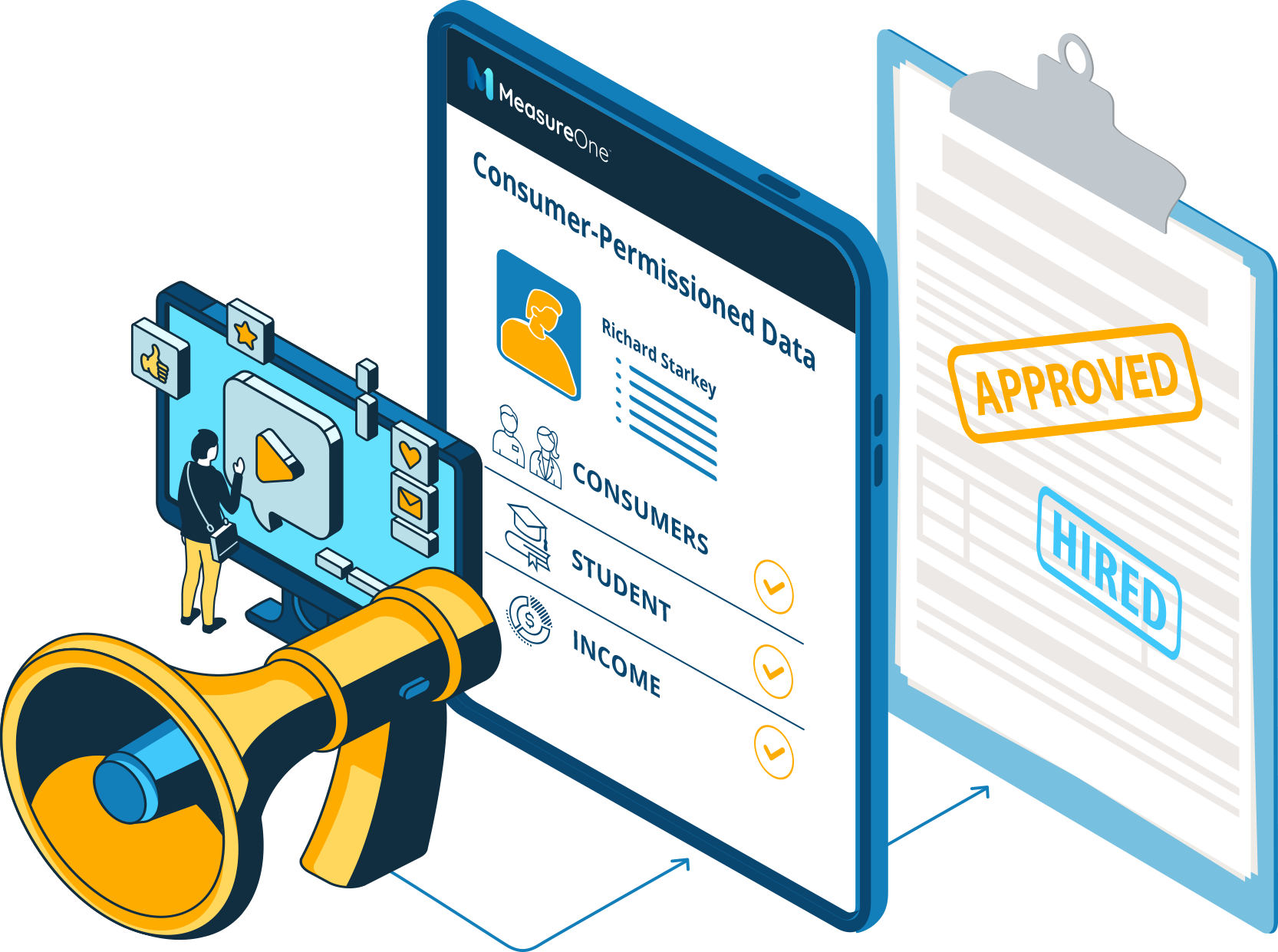At a time when technology is automating much of the cumbersome processes of recruitment, employment screening, and talent retention, it should come as no surprise that the way in which candidate and employee verifications have been conducted to date is also being revamped. Historically, an employer asks a candidate for references from recent previous employers, and will directly contact those companies or go to a third party data provider, which can be a costly process. There is a new model emerging, consumer-permissioned data sharing, and it’s not only changing the dynamic between employers, employees and prospective job seekers, it’s creating a much more transparent and trusted exchange mutually benefitting all parties.
What is consumer-permissioned data sharing and why is it important?
The concept of consumer-permissioned data began in the financial services industry as a way to access consumers’ financial data to unlock access to financial products and services, such as apps like Venmo. However, we’re now seeing its broad applicability across all manner of industries where information needs to be safely and securely shared between individuals and businesses. Driven by concerns of privacy and a more efficient data exchange, the rapid acceptance of a consumer-led data model is reshaping the verifications and consumer data exchange landscapes.

